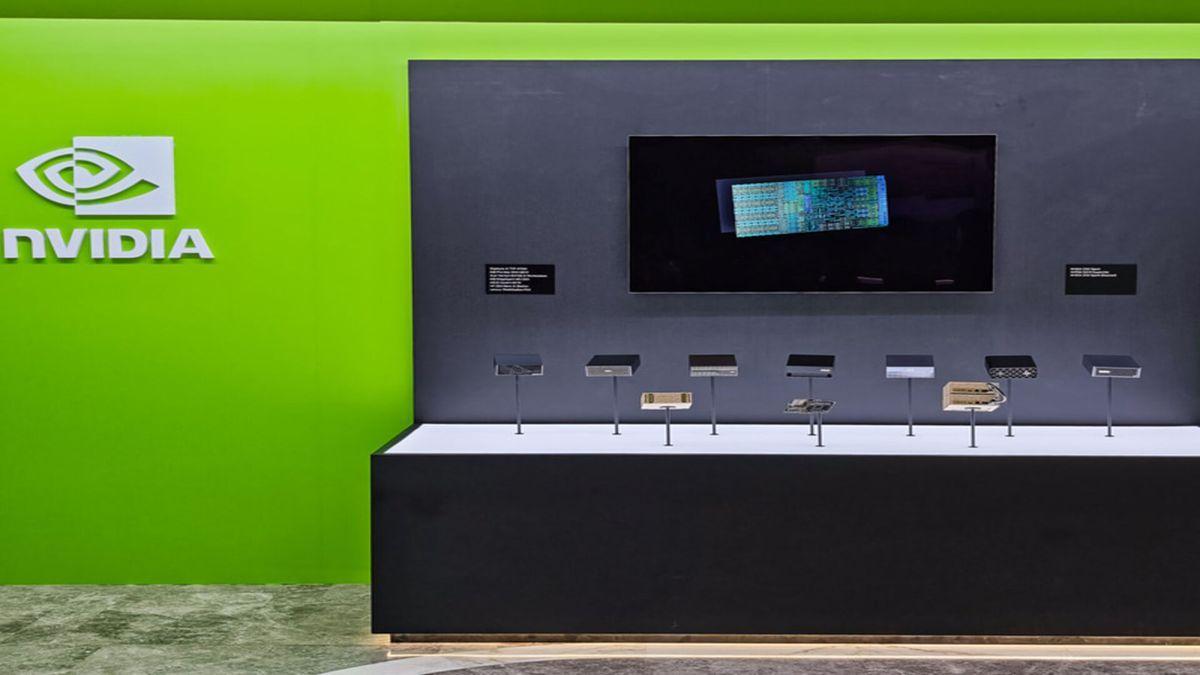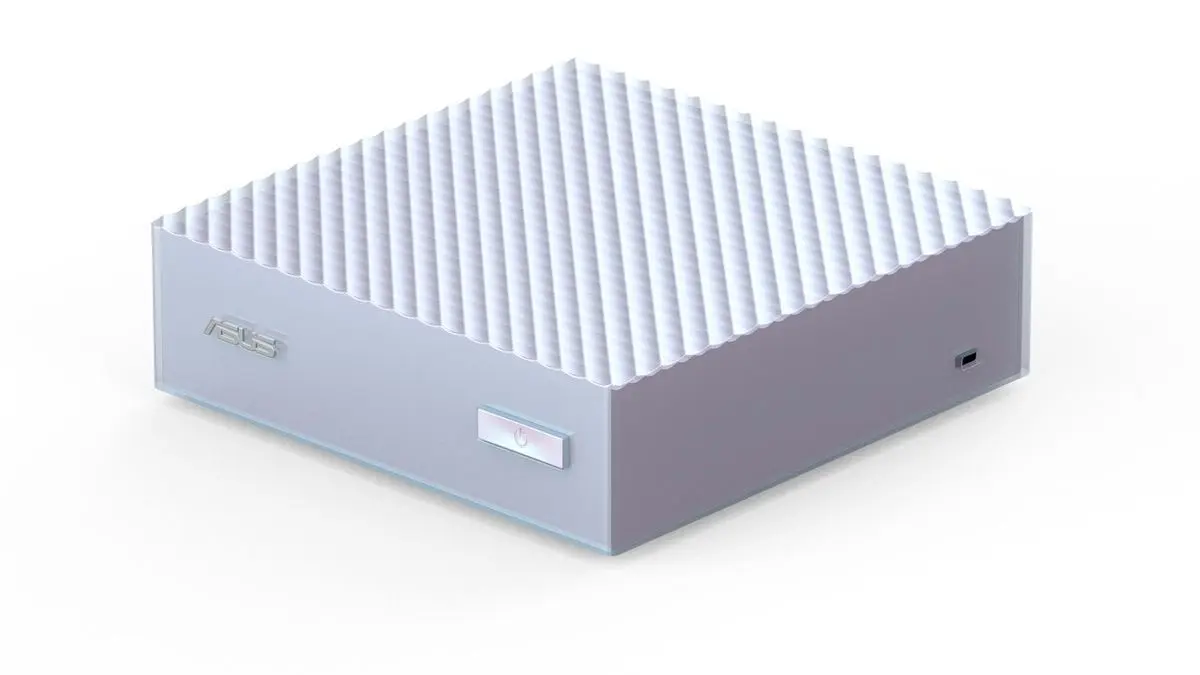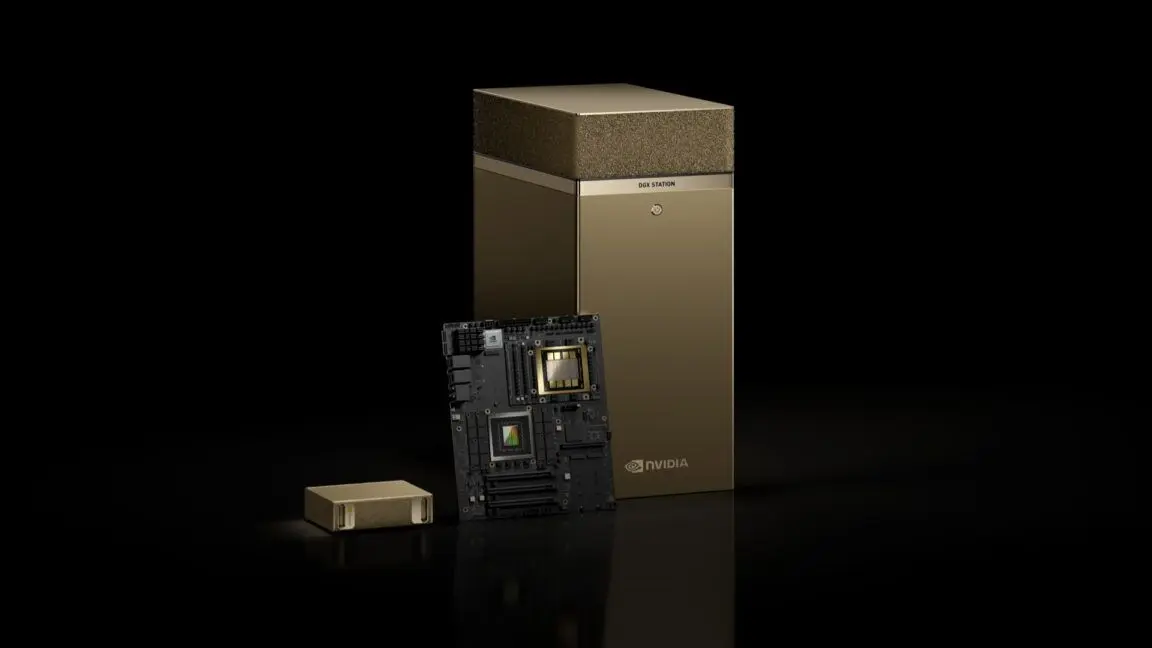MSI Unveils EdgeXpert MS-C931: A Powerful Desktop AI System, But Is It Really a 'Supercomputer'?
2 Sources
2 Sources
[1]
MSI unveils EdgeXpert MS-C931 desktop AI supercomputer powered by Nvidia DGX Spark
The device is powered by Nvidia's GB10 Grace Blackwell Superchip MSI has unveiled its new EdgeXpert MS-C931 desktop AI supercomputer, powered by Nvidia's DGX Spark platform at Computex 2025. As was previously revealed, MSI's new EdgeXpert MS-C931 features the Nvidia GB10 Grace Blackwell Superchip, capable of 1,000 AI TOPS FP4 performance. The MS-C931 also features ConnectX 7 networking and 128GB of unified LPDDR5x memory, offering support for large language models. The MS-C931 is designed for AI developers and researchers, with practical applications in education, finance, and healthcare. The Nvidia GB10 carries the 'superchip' moniker, sporting the latest-generation Blackwell CUDA cores, fifth-generation Tensor Cores, connected by Nvidia's NVLink-C2C chip-to-chip interconnect to an Nvidia Grace CPU with 20 Arm architecture efficiency cores. MSI says the NVL-C2C technology offers a "seamless" CPU+GPU memory model, with up to five times the bandwidth of PCIe 5.0. The MS-C931 weighs in at just 1.2kg, measuring 151mm x 151mm x 52 mm. MSI's MS-C931's connectivity features 4x USB 3.2 Type C ports, a 10GbE RJ-45 connector, Wi-Fi 7, and Bluetooth 5.3. Storage configurations include either 1 or 4TB of NVMe M.2 storage with self-encryption, and on board, you get Nvidia's DGX OS. MSI's system, like all GB10 systems, can run up to 200-billion-parameter large language models, or up to 405-billion-parameter models when using two devices connected via Nvidia Connect X. The MSI EdgeXpert MS-C931 is available to pre-order now, but you'll have to contact MSI directly if you're interested in buying one. At Computex, MSI also unveiled a new 500 Hz QD-OLED monitor with AI that can detect human eyes to power down when you're not looking at it, to prevent burn-in.
[2]
MSI says it built a desktop AI supercomputer but what that really means might disappoint you
MSI is the latest entrant in the race to miniaturize AI infrastructure with its upcoming EdgeXpert MS-C931, a compact desktop system positioned as an AI supercomputer. Following the launches of the Dell Pro Max with GB10 and the Asus Ascent GX10, MSI's new machine is built on Nvidia's DGX Spark platform and will be showcased at COMPUTEX 2025. While the hardware sounds formidable, questions remain about whether this device truly lives up to the lofty label of a "desktop AI supercomputer", or if it's simply a case of marketing overreach. A powerful machine built on familiar ground The EdgeXpert MS-C931 is powered by Nvidia's GB10 Grace Blackwell Superchip, delivering up to 1,000 TOPS of AI performance (FP4), 128 GB of unified memory, and ConnectX-7 high-speed networking. MSI says the system targets sectors like education, finance, and healthcare, where data privacy and low latency could justify on-premise hardware over cloud-based services. Given its specs, the MS-C931 could rank among the most capable workstation PCs currently in development. Its high memory bandwidth and AI-focused compute also suggest it could be a top-tier PC for coding, especially for machine learning or large-scale simulation tasks. However, the real value of this product depends less on its raw specs and more on how grounded MSI's claims about its purpose truly are. The phrase "desktop AI supercomputer" continues to be used liberally, and MSI's adoption of it raises similar concerns to those previously leveled at Asus and Dell. A supercomputer, by definition, implies massive parallel processing power, usually deployed across large-scale server racks. Shrinking that concept down to a single desktop machine, even with cutting-edge components, feels more like branding than technical accuracy. MSI isn't alone in this; Nvidia's DGX Spark framework itself seems at least partially designed to enable this kind of positioning. For all the talk of supporting top-tier AI tools and delivering enterprise-grade performance at the edge, there's currently little evidence that these systems approach the breadth or scalability of true supercomputing infrastructure. Even 1,000 TOPS, while impressive, must be understood in the context of what modern AI teams actually require to train or run LLMs. While MSI may succeed in delivering a dense, high-performance system for localized inferencing and AI prototyping, the real-world utility of the MS-C931 is likely narrower than the "supercomputer" label implies. Until these machines prove their value in practice, calling them desktop supercomputers feels more like aspirational branding than a reflection of what they truly deliver.
Share
Share
Copy Link
MSI introduces the EdgeXpert MS-C931, a compact desktop AI system powered by Nvidia's DGX Spark platform, sparking debate over the term 'desktop AI supercomputer'.

MSI Introduces EdgeXpert MS-C931: A Compact AI Powerhouse
MSI has unveiled its latest offering in the realm of AI computing, the EdgeXpert MS-C931, at Computex 2025. This compact desktop system, built on Nvidia's DGX Spark platform, is being marketed as a "desktop AI supercomputer"
1
. The device is powered by Nvidia's GB10 Grace Blackwell Superchip, capable of delivering up to 1,000 AI TOPS (Tera Operations Per Second) in FP4 performance1
2
.Technical Specifications and Features
The EdgeXpert MS-C931 boasts impressive specifications:
- Nvidia GB10 Grace Blackwell Superchip
- 128GB of unified LPDDR5x memory
- ConnectX-7 networking
- 4x USB 3.2 Type C ports
- 10GbE RJ-45 connector
- Wi-Fi 7 and Bluetooth 5.3 connectivity
- 1 or 4TB of NVMe M.2 storage with self-encryption
- Nvidia DGX OS
Weighing just 1.2kg and measuring 151mm x 151mm x 52mm, the MS-C931 is designed for portability and ease of use
1
.Target Applications and Capabilities
MSI positions the EdgeXpert MS-C931 for AI developers and researchers, with potential applications in education, finance, and healthcare
1
. The system can run large language models with up to 200 billion parameters, or up to 405 billion parameters when two devices are connected via Nvidia Connect X1
.The 'Supercomputer' Debate
While the EdgeXpert MS-C931's specifications are undoubtedly impressive for a desktop system, the use of the term "desktop AI supercomputer" has sparked debate in the tech community
2
. Critics argue that this label may be more marketing hyperbole than an accurate technical description.Traditionally, supercomputers are associated with massive parallel processing power deployed across large-scale server racks. Shrinking this concept to a desktop form factor, even with cutting-edge components, raises questions about the appropriateness of the term
2
.Related Stories
Industry Trend and Skepticism
MSI is not alone in this approach. Other major tech companies like Asus and Dell have also released similar products based on Nvidia's DGX Spark framework
2
. However, there's growing skepticism about whether these systems truly deliver supercomputer-level performance and scalability.While the EdgeXpert MS-C931 may excel in localized inferencing and AI prototyping, its real-world utility might be narrower than the "supercomputer" label suggests
2
. The true value of these systems will ultimately be determined by their performance in practical applications rather than marketing claims.Conclusion
As the AI hardware landscape continues to evolve, the introduction of powerful desktop systems like MSI's EdgeXpert MS-C931 represents an interesting development. However, potential users and industry observers should approach the "desktop AI supercomputer" claim with a critical eye, focusing on the system's actual capabilities and use cases rather than marketing terminology.
References
Summarized by
Navi
[1]
Related Stories
MSI and Minisforum race to deliver powerful AI PCs in ultra-compact designs
07 Jan 2026•Technology

NVIDIA's DGX Spark: A Compact AI Powerhouse Set to Launch in July 2025
03 Jun 2025•Technology

ASUS Unveils Ascent GX10: A Compact AI Supercomputer Powered by NVIDIA's GB10 Grace Blackwell Superchip
19 Mar 2025•Technology

Recent Highlights
1
Pentagon threatens Anthropic with Defense Production Act over AI military use restrictions
Policy and Regulation

2
Google Gemini 3.1 Pro doubles reasoning score, beats rivals in key AI benchmarks
Technology

3
Anthropic accuses Chinese AI labs of stealing Claude through 24,000 fake accounts
Policy and Regulation





